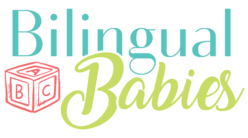Yeonsuk Cho has a PhD in educational psychology and has been working as a research scientist in second language learning and assessment for multiple years. Originally from Korea, Yeonsuk and her husband are raising their daughter (11) with English and Korean in the United States. Their bilingual journey has a number of struggles, challenges, and regrets. But in the end, it shows that when your child takes pride in knowing the minority language…you won! Read here how a bilingual mom has been fighting her own demons and, in the process, turned her daughter into an English-Korean bilingual.
Location: USA
Parents (mom & dad): Korean and English
Daughter (11 years old): English, Korean
__________________________________________________________________________________________________________
Veronika: Thank you so much for taking the time! Okay, could you explain a little what your family situation is like? Who belongs to your family? Who speaks what languages with whom?
Two Koreans in the United States
 Yeonsuk: My husband and I are from Korea. My husband speaks English but he’s reluctant to speak it because he doesn’t feel comfortable in English. Before our daughter was born, we spoke only Korean. Back then, we had a long-distance relationship because my husband was finishing up his studies in a different state and didn’t live with me. That was still the case when my daughter was born. So in the beginning, it was just me and my daughter, Jooyeong.
Yeonsuk: My husband and I are from Korea. My husband speaks English but he’s reluctant to speak it because he doesn’t feel comfortable in English. Before our daughter was born, we spoke only Korean. Back then, we had a long-distance relationship because my husband was finishing up his studies in a different state and didn’t live with me. That was still the case when my daughter was born. So in the beginning, it was just me and my daughter, Jooyeong.
Veronika: So how did you expose her to both languages, English and Korean?
The early years of the bilingual journey
Yeonsuk: I read to her in both languages, though mostly in English. But when I’d talk to my husband on the phone, it was always Korean. So when I spoke to him on the phone, she would hear Korean. Although she was not directly involved in the conversation, she would hear it. So she was exposed to both Korean and English from day one. Then, when she was eight weeks old, she started to go to an English-speaking daycare and spent most of the day there, came home, and then slept.
Veronika: How old is she now?
When your child suddenly stops speaking the minority language
 Yeonsuk: She’s 11. Interestingly, even though she was at daycare, her first words were Korean. I think that’s because I talked to her in Korean when she was very young. But I gotta admit, I slipped quite often and spoke English to her. Nevertheless, her first few words like ‘birds’, ‘mom’, ‘rice’ and all those things that you can point at were in Korean. But then, when she was about two years old, it changed all of sudden. When she started to put words together to create short sentences, she became predominantly English-speaking.
Yeonsuk: She’s 11. Interestingly, even though she was at daycare, her first words were Korean. I think that’s because I talked to her in Korean when she was very young. But I gotta admit, I slipped quite often and spoke English to her. Nevertheless, her first few words like ‘birds’, ‘mom’, ‘rice’ and all those things that you can point at were in Korean. But then, when she was about two years old, it changed all of sudden. When she started to put words together to create short sentences, she became predominantly English-speaking.
So when I realized that, I began to talk to her more in Korean again. I would always start with Korean, but then my daughter knew that I understand English because she heard me talking to other people. So she always talked back to me in English and I fell into that trap: I found myself speaking English to her which my husband hates to this very day.
Veronika: What do you think was the reason for her switching to English all of a sudden?
Yeonsuk: I guess she understood that everyone spoke English.
Veronika: So it was the least common denominator….
Yeonsuk: Yes, The first two years, it was just me, her, and daycare—everyone spoke English. Then my husband joined us and started living with us when she was about 2. When he spoke more Korean, she would first mix Korean and English, but even though my husband was home and spoke to her in Korean, her English remained the stronger language. I think that’s because she had friends at school.
All of them spoke English. Her teachers spoke English. She knew I speak English and she knew that my husband can understand and speak a little bit of English. So I guess that it was natural for, and she would speak more English—also to my husband. I think it was easier for her to just stick with one language.
My husband didn’t like that. So we tried to have her exposed to more Korean. As she got older, we put posters with the Korean alphabet on the wall and things like that. But then, we got a little worried when she was around 3.5 that her English was getting too dominant. She wasn’t even mixing Korean and English anymore. It was all English.
Consistency is key—and, yes, it can be challenging at times
 I don’t know how you’re doing it with Ella. Your husband doesn’t speak German, right? So I don’t know how you do it.
I don’t know how you’re doing it with Ella. Your husband doesn’t speak German, right? So I don’t know how you do it.
Veronika: Well, I speak to her in German almost the entire time and when we have dinner or the three of us are together, I try to say everything in German first to her and then say the same thing in English again to keep my husband in the loop.
Yeonsuk: Wow. That’s a lot of discipline.
Veronika: Sometimes I get tired or if I feel it wasn’t important, I forget the English part. Then my husband sometimes protests. But yes, I usually try to repeat everything and I try to say the German first to get Ella to process the minority language before she hears it in English.
Plan B: Korean school on Saturdays
Yeonsuk: That’s great. We were looking into sending Jooyeong to a Korean school nearby. The only thing that we could find, was all church-based, except one. They rent the rooms from a church but they were not associated with the church. It was two hours every Saturday.
Veronika: Did that help boost her Korean?
Yeonsuk: Well, it was the first time that my daughter refused to go to school. She usually loved going to school, but she found Korean school boring because her Korean was too advanced to be in that group. That Korean school was interesting because most children came from families in which the parents did not speak Korean at all.
It is important to find the right school and program for your little bilingual
Veronika: Yes, she is what is called ‘a heritage learner’—a kid whose parents are native speakers of the minority language. Those are very different learner profiles: learning a language as an additional language versus learning it as a native speaker at home.
Yeonsuk: That’s right! Most of the other children’s parents don’t speak Korean at home, so the children’s Korean is much worse than my daughter’s. It was basically a sort of cultural awareness program for them. So for her, it was torture so she refused to go and we soon needed to find something else.
Yeonsuk: At first, my husband tried to teach her Korean at home, but I’m always the problem
Veronika: Because you cave?
Parents’ language choices are key and shape a family’s language use
 Yeonsuk: Yeah, I always find myself talking to her in English. I don’t know why. My husband always tells me: “Your English is broken! Why do you speak English? Truth is: I don’t know. It’s, it’s just easier, you know.
Yeonsuk: Yeah, I always find myself talking to her in English. I don’t know why. My husband always tells me: “Your English is broken! Why do you speak English? Truth is: I don’t know. It’s, it’s just easier, you know.
Veronika: Is he very consistent and just speaks Korean?
Yeonsuk: Yes, he is. I think it’s because it’s easier for him. The other day I was observing their interaction when they were playing golf. My husband would tell her something in Korean and then my daughter, understanding completely, would respond in English. I thought it’s very interesting that he constantly talks to her in Korean, she understands, but then respond in English. They are perfectly in sync.
Veronika: Just in different languages, I guess.
In the same conversation, one speaks Korean, the other one English
Yeonsuk: My husband’s primary language is Korea, he’s more comfortable explaining in Korean. I mean he’s not dumbing down or adjusting his language when he talks to Jooyeong. He just speaks to her and she understands.
Veronika: But then she can answer in English. So there is no need for her to speak Korean. He understands what she says and lets her get away with speaking English. So if he gives you grief about switching to English…he let’s her get away with speaking English too!
Yeonsuk: Ha! Right! And I was asking him: why do you not speak back to her in English? He said that they were just sticking to the languages they were most comfortable with. Anyway, I don’t know how we got to this. So let me get back to my original story…
Raising a child bilingual can take a considerable effort
So around when she was five or six, we were talking to several people, trying to find a solution. One night, a restaurant owner said there is a place in northern New Jersey, it’s a really great Korean program with children who come from Korea and are here just temporarily. So at that school, they follow a strict Korean curriculum and use a textbook. It’s a little bit out of our way. It’s an hour and a half away, but I thought we had to do it, you know?
Veronika: Yeah…
Yeonsuk: And so we dragged her there and it’s been I think five years by now. No, wait, she repeated kindergarten so it’s been six years.
Five years in a new Korean school and going strong!
 Veronika: Is it just on the weekend? Or a regular bilingual school?
Veronika: Is it just on the weekend? Or a regular bilingual school?
Yeonsuk: Just Saturdays. Classes start at nine o’clock and end at 3:30. So it’s a long day. They cover Korean, math, and civics and also they have music class and physical education. So the academic calendar is a bit different. They strictly follow the Korean academic calendar. So the new academic year starts in March. That’s when they get the new textbooks shipped straight from Korea.
Veronika: What is that school called?
Yeonsuk: It’s called “Our Korea” school. They are based in New York and used to be big. They used to have several hundred schools. But now they are shrinking because the principal says that fewer people come to the United States nowadays. So the Korean school is getting smaller and smaller. But without that school, I mean, Jooyeong wouldn’t have been able to speak a word.
Supplementing the language school at home
Veronika: What did you do at home to keep up her Korean?
Yeonsuk: We try to teach her Korean letters and even Chinese letters too because that’s also the root, but it didn’t work out…
Veronika: How did you approach that? Did you make her sit down and do it?
 Yeonsuk: Yeah. Sit down and we would ask her to write her name in Korean and in English, show her how it sounds like and how it looks in Korean. She was interested at first but then lost interest. She was more interested in learning Spanish because that’s what her friends and other kids in school would learn. So she was more interested in that. To be honest, it was a real struggle to try to keep up Korean because she knows I speak English. I would always say to her: you have to speak Korean, you have to speak Korean. And she’d say “okay” and she’d say it in Korean and then she’d be silent. And it was always that pattern. She’d have her set two phrases she’d use and then she’d be silent for maybe a minute or two. And then I’ll talk to her and then she would talk to me. She would try to talk to me in Korean, but then she would put a lot of English words in her sentence.
Yeonsuk: Yeah. Sit down and we would ask her to write her name in Korean and in English, show her how it sounds like and how it looks in Korean. She was interested at first but then lost interest. She was more interested in learning Spanish because that’s what her friends and other kids in school would learn. So she was more interested in that. To be honest, it was a real struggle to try to keep up Korean because she knows I speak English. I would always say to her: you have to speak Korean, you have to speak Korean. And she’d say “okay” and she’d say it in Korean and then she’d be silent. And it was always that pattern. She’d have her set two phrases she’d use and then she’d be silent for maybe a minute or two. And then I’ll talk to her and then she would talk to me. She would try to talk to me in Korean, but then she would put a lot of English words in her sentence.
Veronika: So she seemed to be struggling and not feel as comfortable in Korean, but tried to do it to please you. Has that changed now that she is older and has been attending Korean school for several years? For example, I know you’re homeschooling Jooyeong, right?
Homeschooling in Korean
Yeonsuk: Yeah.
Veronika: How does that work? Does your husband homeschool in both languages?
Yeonsuk: My husband is homeschooling in Korean. When he’s teaching, he does it in Korean, but it’s more like an instruction language.
Veronika: So there is no interaction between her and your husband in Korean. Is it like when they play sports? He speaks Korean, she speaks English?
Yeonsuk: Well, when they watch a Korean movie or sports event, she will speak to him in Korean. So nowadays it’s a bit more of a mixture of the Korean and English. Also, when I force her to speak Korean, she’ll do it as long as needed but she’s still more comfortable speaking English so she switches back to English as soon as she can. It’s not like she can’t speak Korean… For example, I noticed that when she spends a few hours with a Korean speaker, like a friend her age, she’ll come home and she’ll speak Korean to me right away.
Speaking is a struggle: The need to practice and automatize the language
 Veronika: So it’s a matter of practice and automaticity …
Veronika: So it’s a matter of practice and automaticity …
Yeonsuk: Yeah. So we have a family here visiting from Korea for a year. The father is on Sabbatical. So if she hangs out with their daughter, she will speak Korean to her. I think it’s difficult for my daughter to speak Korean, but somehow she manages and they interact in Korea.
Veronika: Yes, I think what your daughter may need is speaking practice. It seems that she has the language skills, but it’s still more cognitively challenging for her to speak Korean because she has not automatized the language. So basically what that means is she can do it, but she needs to focus more when she speaks Korean. It’s not as automatic as English. So that can be mentally taxing. For language to become automatic, she needs to just practice and interact with other Korean speakers—but it needs to be with people whom she associates with Korean. Basically people or situations that do not give her ‘an out’ where she can switch to English. And with you and your husband she has found the loophole…
Yeonsuk: Yeah. Interesting, yeah, and I noticed that when she comes back from Korean school on Saturdays, she’ll speak to me in Korean for awhile, but then …
Veronika: … switches back to English.
Yeonsuk: Yes. Yeah, yeah, yeah.
Veronika: Interesting.
Language as a way to connect with your child on a deeper level
Yeonsuk: Yeah. So without that Korean school, we wouldn’t have been able to communicate to Jooyeong in Korean. I told her that it would be a problem down the road if she didn’t speak Korean because she and I would lose connection. I said “Mom can speak English, but just to a certain level. So when you are young, we can easily communicate about basic stuff. But when you’re older and talk about deeper meanings in life and these things, I can only do that in Korean and I want you to be able to understand what I’m telling you. I don’t want to lose that bridge.” She understood that. So she made the effort to get up at six in the morning on Saturdays in order to be at Korean school at 8:30AM.
Friends who speak the minority language are a huge motivation to learn and keep up that language
 Yeonsuk: But there was a point in time when she wanted to give up . And she did. She gave up and didn’t go for a semester and we let her do it. But luckily her friends from Korean school stepped in. She had already built some relationships and friendships. So they kept asking, “when are you coming back?” So eventually she went back and then actually told me. She’s like: “It is my language. I need to keep up with it.” Although she still doesn’t like going to Korean school early in the morning on Saturdays, she does it. So yeah.
Yeonsuk: But there was a point in time when she wanted to give up . And she did. She gave up and didn’t go for a semester and we let her do it. But luckily her friends from Korean school stepped in. She had already built some relationships and friendships. So they kept asking, “when are you coming back?” So eventually she went back and then actually told me. She’s like: “It is my language. I need to keep up with it.” Although she still doesn’t like going to Korean school early in the morning on Saturdays, she does it. So yeah.
Veronika: The power of friendship can be a huge motivator!
Yeonsuk: Yes! and also she is proud that she can understand some difficult words that some heritage speakers cannot understand like more academic Korean or things you usually just learn in Korean contexts. For example, I was talking about a perception in Korean, and asked her if she knew what that meant? She said like people’s perception of you, that’s a Sino-Korean, which is difficult. So it’s Korean, but it is almost like an English word that has a Latin root word.
Veronika: So a higher register. And she understood?
Yeonsuk: Yeah, like an academic English word. Yes. She understands that because her teachers used that language at Korean school.
Praise and positive reinforcement are boosters!
Veronika: So she probably got positive for enforcement for it, like praise which may be motivating. It helps boost her self-esteem when using Korean.
Yeonsuk: Yeah. Yeah. Yeah. So I mean she talks to my family when she’s on the phone with my mom, her grandma, and her aunts. She doesn’t have any problem understanding them. And she can talk to them.
Veronika: And they don’t have any problem understanding her, right?
Yeonsuk: They don’t, I think they are being kind. I can feel that. She clearly has an accent. I think they don’t expect her to speak Korean. So they are impressed. I think she writes better than she speaks because there’s no pressure, time pressure for her to respond right away.
Veronika: That again goes back to the lack of automaticity.
She excels at writin g, reading, and listening…
g, reading, and listening…
Yeonsuk: Yes, I was actually impressed when I saw her schoolwork in Korean. I was like “Wow, you can write this much?” And she said; “Yes!” Oh, okay. So it was, it was impressive.
Veronika: That’s cool.
Yeonsuk: Yeah. Yeah. She struggles a little with reading. Her teachers said that reading aloud is a bit difficult for her because of the time pressure.
Veronika: Interesting.
Yeonsuk: But listening is better for her because…
Veronika: … well, she’s used to that from your husband. She practices reading every day.
…but struggles with speaking the minority language
Yeonsuk: Right. And reading aloud is a type of a speaking task. So she knows that she’s being judged or evaluated at school. I think that is the pressure. I can see that she stutters at times and doesn’t want to do it. So she has an interesting sort of “language profile”.
Veronika: Very interesting profile. Usually bilingual children can speak a lot because they’re used to oral communication all the time. That she is better at writing is different.
Yeonsuk: Yeah.
Veronika: So what would you advise other parents who are either already raising their children bilingually or are thinking about getting started?
When negative feelings about your own native language get in the way of raising your child in the minority language
Yeonsuk: I think they should still continue doing that. My big mistake was not keeping the languages separate. I should’ve been more strict. Well, I told you before that one of the reasons maybe why I wasn’t so strict with speaking Korean was because I speak Korean with a strong regional, southern accent that is considered a bit vulgar or boorish. It’s the accent that they make fun of on Korean TV. It’s not a standard accent or “high Korean” so some people don’t want to use it. If you have an ignorant farmer in a movie, he will speak that accent. My husband didn’t even want to date a woman from that area because of the accent. He has very strong feelings about it. But then irony has it: he married one! So I didn’t want my daughter to have that accent, you know? I was afraid that if she learns Korean from me, she would pick up that local variety. And I didn’t want her to have that.
But, funny enough, even though my husband is talking to her in Korean, while I switched to English so much, she still somehow managed to pick up the accent from me, which is very interesting. My husband speaks standard Korean. He has no accent. I mean, although she spends more time with him and speaks to him in Korean … I don’t know why… she picked up the accent from me. Same thing with her Korean school teacher: her teacher doesn’t have an accent. Only I do. But when Jooyeong speaks Korean, she somehow has my accent. I thought it was fascinating. Maybe children may get more influenced by their mother? I don’t know.
Veronika: Maybe in the beginning but then accents can change…
Yeonsuk: I read research studies and other bilingual literature for a while. They say being bilingual is great for your brain development. But, at the same time, bilingual children tend to lag in vocabulary development, their repertoire or breadth of words. That makes sense because you have to deal with two word systems …
Veronika: Actually, if you take all the words a bilingual child knows in both (or more) languages together, then they oftentimes have a much larger vocabulary than their monolingual peers. And over time it’ll most likely balance out. But that’s not the point, right?
“I regret that I did not speak strictly in Korean to her all the time.”
Yeonsuk: Right, right. I guess I tried to find a reason for justifying my action to switch to English so much. I think what I’m saying is: I regret that I did not speak strictly in Korean to her all the time. Maybe today her spoken Korean could have been better… but then if we had not sent her to Korean school, she might not be able to read and write as well as she can now. Well, that was a long explanation, but I think I would encourage bilingual parents to pass on their language and culture from the beginning because they are part of who you are.
What language goals are you setting for your bilingual child and family?
Veronika: Well, having listened to all of what your daughter can do and has accomplished, I don’t think you failed! She can talk to your parents, she can talk to other friends in Korean, and she can use words that are beyond the reach of her classmates. She managed to impress you with her writing. I wonder if you are a bit too hard on yourself. You managed to get her there. She may struggle with speaking but that’s a comparatively small thing to work on and it sounds like she is doing that! Maybe it’s a matter of setting goals… what exactly is your goal for your daughter’s bilingual skills?
Yeonsuk: I want the perfect native, the perfect bilingual.
Only 1% of bilinguals are perfect or balanced bilinguals
 Veronika: Okay… Well, you realize that only about 1% of ALL bilinguals are perfect or balanced bilinguals, right? That is super rare! So that’s, that’s quite a high goal…
Veronika: Okay… Well, you realize that only about 1% of ALL bilinguals are perfect or balanced bilinguals, right? That is super rare! So that’s, that’s quite a high goal…
Yeonsuk: That’s what I want. Both of her parents are Korean, right? Her English is as good as mine from an academic perspective and when she can speak Korean better she can easily follow a regular school in Korea. My friend actually says that when she lives in Korea for a while, she is going to be okay. So yeah, being a balanced bilingual is what I’m shooting for.
Veronika: Overall, I think Jooyeong is doing great! Because being among the 1% is very rare.
Yeonsuk: Yes, I think parents shouldn’t be afraid because I mean children are really, adaptable and flexible. I think if you can expose them to languages, that’s really something.
Veronika: Yes, you can build bridges and communicate with people.
When your child takes pride in knowing the minority language…you won!
Yeonsuk: My daughter loves when she actually walks around and she hears a Korean speaking. You can see in her face that she takes pride in knowing the language. She loves the idea of speaking to these people and, as you said, build relationships. In general, I think being bilingual is a blessing.
Veronika: Thank you so much. That was really insightful!

